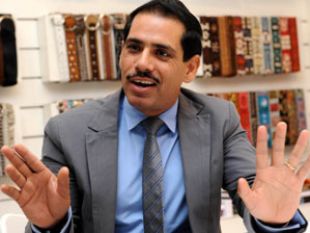
New Delhi, October 7: Realty major DLF on Saturday rejected the allegations that it had given unsecured loans to Robert Vadra in a ‘quid pro quo’ for favours and said it had transparent dealings with him as an individual entrepreneur.
In a statement, the company said it had given him Rs. 65 crore as “business advance” of which Rs. 15 crore was fully refunded and Rs. 50 crore was used for purchase of land.
Rejecting the allegations of activists Arvind Kejriwal and Prashant Bhushan that the company favoured Mr. Vadra, DLF said it neither received any undue benefit from any State government nor was it allotted any land by the Delhi, Haryana and Rajasthan governments.
DLF also dismissed the charge that the company sold properties to Mr. Vadra and his companies at a throwaway price.
“We would like to state that the business relationship of DLF with Mr. Vadra or his companies has been in his capacity as an individual entrepreneur, on a completely transparent and at an arm’s length basis,” DLF said. The business relationship with Mr. Vadra had been conducted in the highest standards of ethics, the company said.
“We wish to categorically state that DLF has given no unsecured loans to Mr. Vadra or any of his companies. An amount of Rs. 65 crore was given as business advance for the purchase of land in two transactions,” it added.
DLF said it purchased 3.5 acres in Gurgaon from Skylight Hospitality for Rs. 50 crore in 2008-09.
“At no stage was an interest-free loan ever given to the Skylight group. There were two sets of business advance against purchase of property, one of which amounting to Rs. 50 crore resulted in a satisfactory conclusion of purchase of commercial land and the second advance of Rs. 15 crore was fully refunded,” it added.
DLF also said that “it is not unusual for parties which sell land to DLF to choose to reinvest the consideration received or part thereof in projects being developed by DLF.”
“There is no question of offering, let alone selling, to Mr. Vadra or his group companies any property at a throwaway price. The allegation that 7 apartments in Magnolias were sold for Rs. 5.2 crore only is also completely baseless. At no stage was a property ever sold to the Skylight group below the then offered price to all customers,” DLF said.





Comments
Add new comment